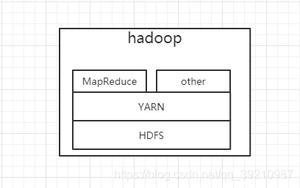K近邻分类算法实现 in Python

K近邻(KNN):分类算法
* KNN是non-parametric分类器(不做分布形式的假设,直接从数据估计概率密度),是memory-based learning.
* KNN不适用于高维数据(curse of dimension)
* Machine Learning的Python库很多,比如mlpy(更多packages),这里实现只是为了掌握方法
* MATLAB 中的调用,见《MATLAB分类器大全(svm,knn,随机森林等)》
* KNN算法复杂度高(可用KD树优化,C中可以用libkdtree或者ANN)
* k越小越容易过拟合,但是k很大会降分类精度(设想极限情况:k=1和k=N(样本数))
本文不介绍理论了,注释见代码。
KNN.py
[python] view plain copy
- from numpy import *
- import operator
- class KNN:
- def createDataset(self):
- group = array([[1.0,1.1],[1.0,1.0],[0,0],[0,0.1]])
- labels = ['A','A','B','B']
- return group,labels
- def KnnClassify(self,testX,trainX,labels,K):
- [N,M]=trainX.shape
- #calculate the distance between testX and other training samples
- difference = tile(testX,(N,1)) - trainX # tile for array and repeat for matrix in Python, == repmat in Matlab
- difference = difference ** 2 # take pow(difference,2)
- distance = difference.sum(1) # take the sum of difference from all dimensions
- distance = distance ** 0.5
- sortdiffidx = distance.argsort()
- # find the k nearest neighbours
- vote = {} #create the dictionary
- for i in range(K):
- ith_label = labels[sortdiffidx[i]];
- vote[ith_label] = vote.get(ith_label,0)+1 #get(ith_label,0) : if dictionary 'vote' exist key 'ith_label', return vote[ith_label]; else return 0
- sortedvote = sorted(vote.iteritems(),key = lambda x:x[1], reverse = True)
- # 'key = lambda x: x[1]' can be substituted by operator.itemgetter(1)
- return sortedvote[0][0]
- k = KNN() #create KNN object
- group,labels = k.createDataset()
- cls = k.KnnClassify([0,0],group,labels,3)
- print cls
-------------------
运行:
1. 在Python Shell 中可以运行KNN.py
>>>import os
>>>os.chdir("/Users/mba/Documents/Study/Machine_Learning/Python/KNN")
>>>execfile("KNN.py")
输出B
(B表示类别)
2. 或者terminal中直接运行
$ python KNN.py
3. 也可以不在KNN.py中写输出,而选择在Shell中获得结果,i.e.,
>>>import KNN
>>> KNN.k.KnnClassify([0,0],KNN.group,KNN.labels,3)
from: http://blog.csdn.net/abcjennifer/article/details/19757987
以上是 K近邻分类算法实现 in Python 的全部内容, 来源链接: utcz.com/z/387427.html




